If you’ve ever dreamt of gathering fresh eggs from your backyard but aren’t quite ready to dive beak-first into full-time chicken ownership, meet Rent The Chicken. Founded by Tennessee husband-and-wife duo Phil and Jenn Tompkins in 2013, this innovative business brings the joys of backyard egg farming to curious or space-limited households across North America. Over a delightful Zoom call, “Homestead Jenn” told me all about Rent The Chicken, and I’m ready to sign up for this spring.
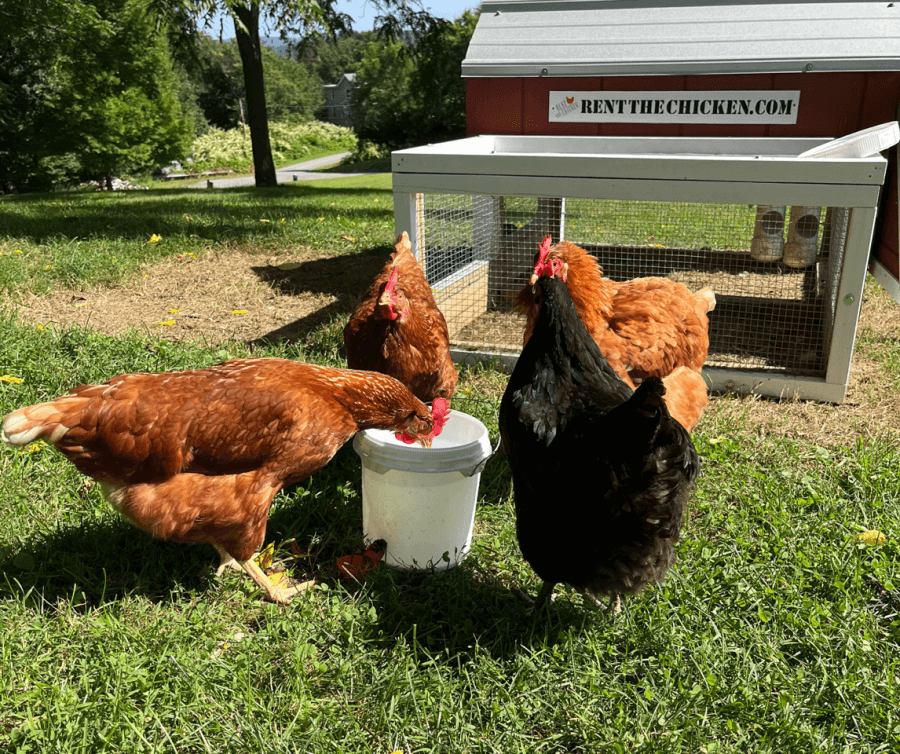
How did the idea for Rent The Chicken hatch, and what was your initial vision for the business?
“Homestead Phil is a visionary,” Jenn says of her husband. “One night, he was scrolling, searching for crazy business ideas, and the SBA (Small Business Association) had chicken rentals listed. We had started with chickens on our own land in Pennsylvania by then, and he looked at me and said, ‘You want to rent some chickens?’ Here we are twelve years later, with affiliate partners across the United States and Canada, still going strong.”

They’re now in about 30 states and two provinces in Canada, and many of their local partners provide Rent The Chicken and Hatch The Chicken (their five-week hatching program) to more than one area. For example, Homestead RayLee and Bubba serve Middle Tennessee, including Nashville, Murfreesboro, Franklin, and Brentwood.
HOW IT WORKS: CHICKENS ON DEMAND
Rent The Chicken functions like a short-term lease for farm life, minus the early-morning rooster wake-up calls. Customers receive a delivered rental package that includes two to four egg-laying hens, a portable chicken coop, a supply of feed, and all the necessary accessories to keep their feathery guests happy and healthy.
The rental period typically runs from spring to fall (April to October or May to November), at which point renters can either extend their contract, adopt the chickens permanently, or bid them a fond farewell as they return to the farm. Rental packages for Middle Tennessee begin at $495 for two hens and a small coop and go up to $1,595 for four hens and a larger “Eglu” coop. Egg output ranges from eight to 14 eggs a week to 18 to 24 eggs a week, respectively.
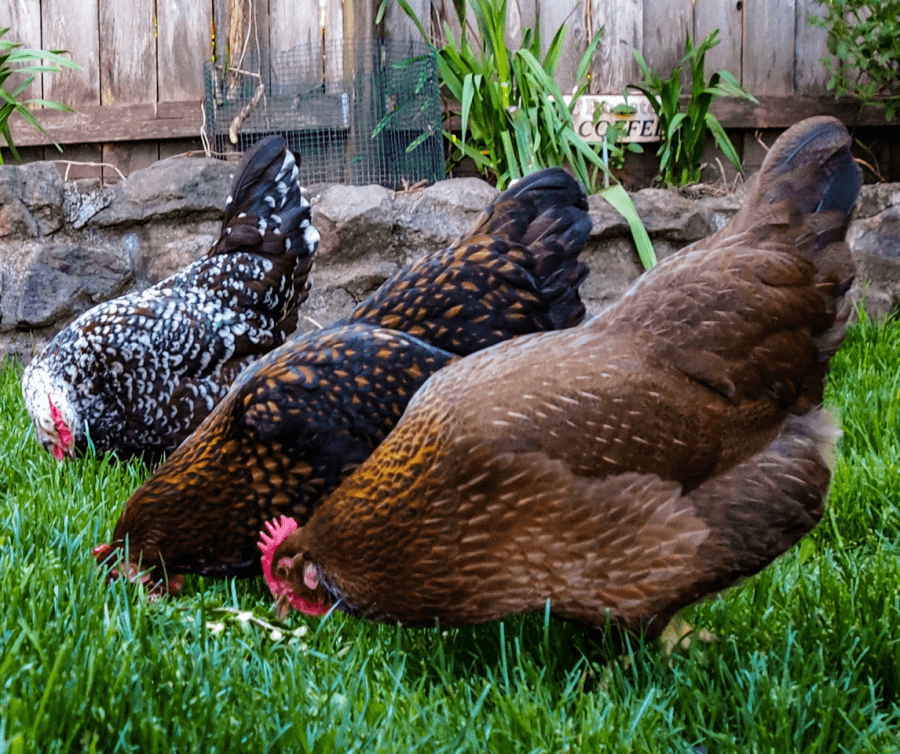
Looking at Store-Bought Egg Prices … Is Now the Time to Rent?
With grocery prices soaring, backyard chicken rentals are more appealing than ever. Rent The Chicken offers an alternative to supermarket sticker shock, providing renters with a steady supply of fresh, free-range eggs whose origin story you’re familiar with. The experience isn’t just practical — it’s sustainable and fun. Families engage in a hands-on, farm-to-table experience, kids learn where their food comes from, and urban dwellers get a taste of the homesteading lifestyle without moving off-grid.
“Our service is more financially comparable to someone starting on their own compared to just the price of eggs,” Jenn says. “It’s not necessarily just for someone who can’t believe the price of eggs in the store. It’s more of a thought process shift. It’s asking how these prices translate to how these eggs are really being produced. How are these hens being treated?” Jenn posits. This is something we’re all wondering, so I asked Jenn to explain egg marketing terms a little more.
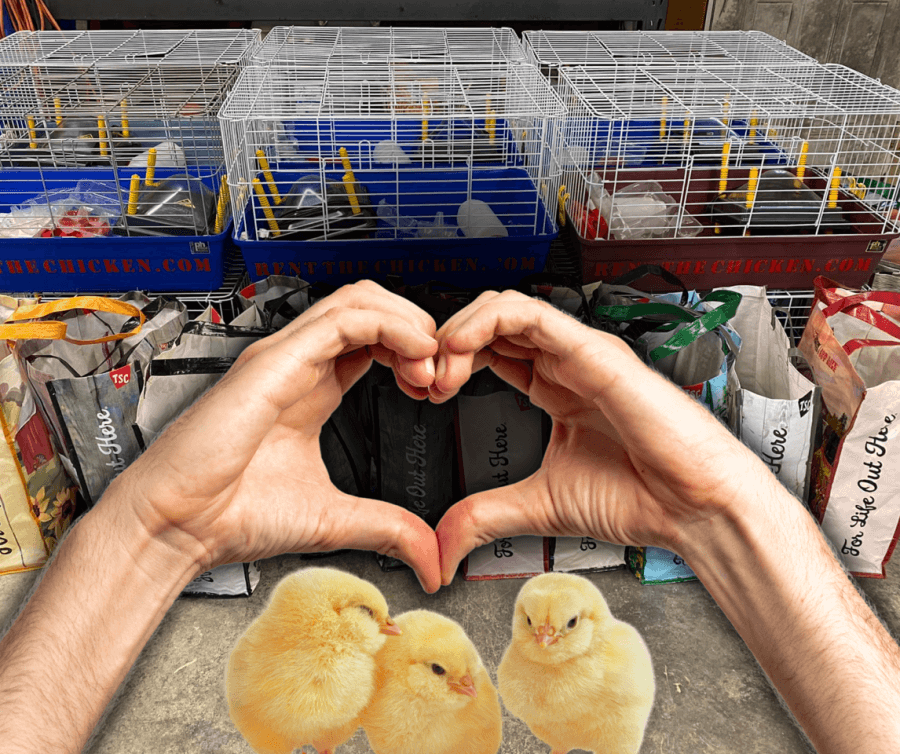
“Organic means they’re being fed a quality certified organic feed, but it doesn’t mean the chicken actually sees the light of day,” Jenn continues. “If an egg is labeled cage-free, it just means they’re not in a cage — it doesn’t necessarily mean that they’re seeing the light of day and free range. Free range means they’re not in a cage; they’re in a building, and a door opens to the outside.”
Though “outside” is not defined and can be alarmingly tiny.
If you want the chicken that your egg comes from to be happy and healthy, think pasture-raised. “Pasture-raised is most similar to what we do but on a larger scale,” Jenn says. “There’s a big giant chicken coop outside. Sometimes, it’s moved through a pasture; sometimes, it’s stationary.” Pasture-raised hens are more susceptible to predators. They’re living their best life, but it might end abruptly.
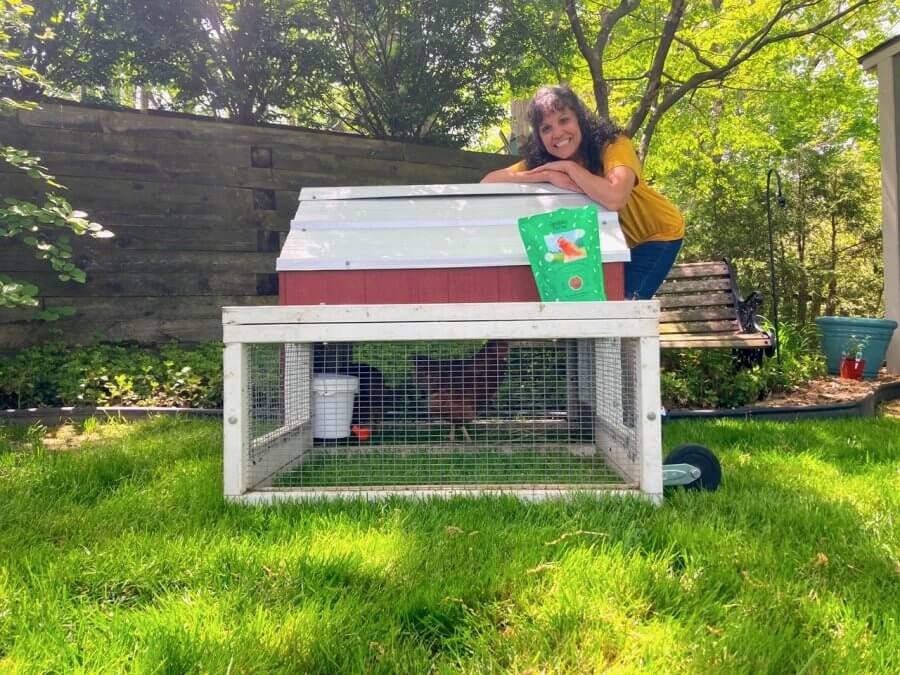
Busting some Myths about Backyard Chickens
People think backyard hens are noisy, but the roosters are the noisy ones. “Another misconception is that you need a rooster for a hen to lay an egg. You don’t,” Jenn says. Roosters do serve a purpose. They’re great flock protectors, but they crow all day, not just in the morning.
Hens make some noise, but it’s more of a cooing sound. “They have a chicken language and will sing a song when it’s time to lay their eggs to announce the job they’ve done. It’s not overwhelming, but it does happen,” Jenn says.
A final misconception is that they’re smelly. “We encourage renters to move their coop once daily so there’s no buildup of droppings or a dead spot in the yard, and the chickens have access to fresh grass and bugs. Two or four chickens make a lot less mess than a big dog,” Jenn assures me.
A Heartwarming Renter Experience Jenn Will Never Forget
Early on — around 2015 — Jenn delivered to a single mom with a son in early middle school. “He was autistic but very verbal, and he was so excited to get his chickens. He even named them before we even got there,” Jenn says. She absolutely does not know every renter’s chickens’ names, but she will remember Charlotte and Mrs. Feathers forever.
Jenn gave a tutorial, introduced them to the chickens, and showed them how the coop worked. The mom told Jenn they were working on his fine motor skills, so they wanted to do everything right.
“While I was there, I could tell one of the chickens was about to lay an egg. She was pacing and making her song, so I told the boy to come over and check the nesting box. When he pulled the egg out, he looked at me and gave the most appropriate emotional response for this egg,” Jenn says misty-eyed. “The mom said, ‘You could take these chickens away today, and I will have had my money’s worth.’ They still have chickens to this day.”
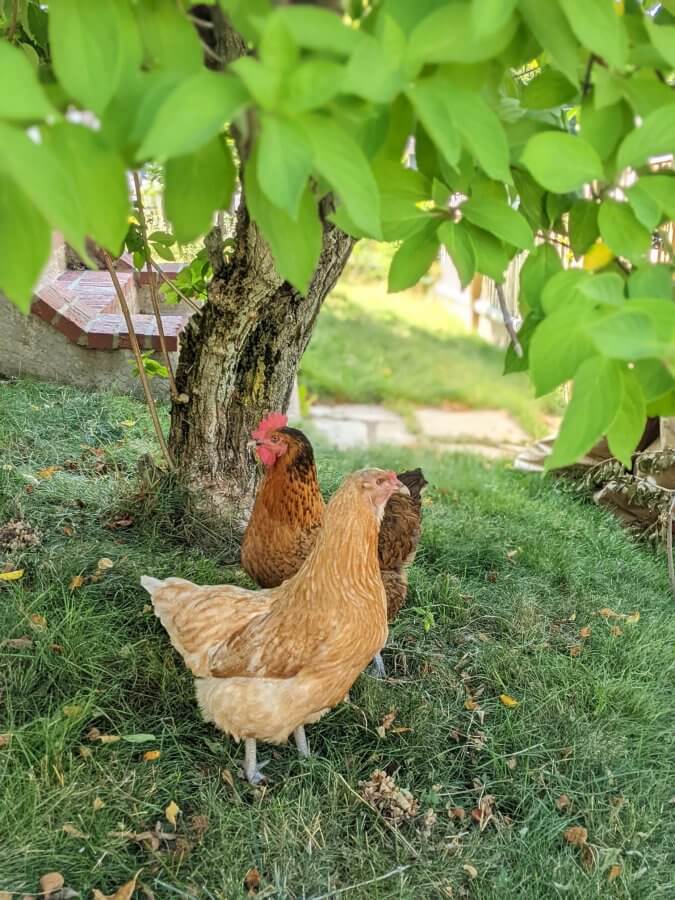
Rent The Chicken’s Trickle Effect on Sustainable Food Choices
Jenn always hears stories from renters who get to know their neighbors a little better because they have something to talk about. Some show up with extra eggs. Some put out benches so passersby can watch the hens.
“Renters talk about their chickens at work like they talk about kids or pets. It’s a community builder,” Jenn says. It’s also been attributed to getting people more comfortable with and curious about other sustainable food efforts. Many will start growing veggies and other produce, taking gardening seriously, or getting into composting. And ultimately, many decide to keep their chickens when the rental period is over.
Still on the Fence about Renting Chickens?
Rent The Chicken provides full support and is always available to answer questions. “We provide the feed, deliver, and pick up the coop,” Jenn says. All you have to do is tend it, feed the chickens, have fun, and enjoy truly pasture-raised, ethical eggs. Jenn ends the conversation by telling me her tagline: “If it’s not a good fit, you can chicken out!”
To see if Rent The Chicken and Hatch The Chicken are available in your area, click here.
*********
Want more of the best of the ideas in the South? Check out our Lifestyle & Culture archives for inspiration of all kinds!



















